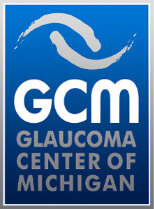
Treatment for cataract requires surgery to remove the cloudy lens within the eye. This cloudy lens is then replaced with a lens implant that helps to focus light clearly upon the retina and allow restoration of sight.
Cataract surgery is an outpatient procedure, with surgery usually performed at an ambulatory surgical center. This is typically a rapid procedure, with the patient returning home shortly after surgery. Anesthesia is given locally, usually with what is known as topical anesthesia coupled with IV sedation as necessary to assure comfort for the patient. The natural cloudy “cataract” lens is removed, and a new clear lens implant is inserted in its place.
The implant that is used at the time of cataract surgery allows light to be precisely focused upon the retina, allowing the best possible vision after surgery. Special implants are available to correct astigmatism (Toric lenses), focus near and far (multifocal and extended depth of focus lenses), or monofocal lenses that provide the best distance or near correction for a patient’s needs. Phacoemulsification is the most common type of small incision, no-stitch surgery used to remove the cloudy lens. The majority of cataract is done without the help of a laser, however there are techniques that utilize laser assisted cataract surgery. This laser has not been proven to improve outcomes and is quite costly and therefore deemed unnecessary by many surgeons. Every patient’s cataract is unique, and your doctor will discuss with you which technique will be best for your individual situation.
Many patients who have glaucoma eventually require cataract surgery. There are ranges of surgical options for addressing both problems so that the eye pressure and vision can be improved simultaneously. MIGS (minimally invasive glaucoma surgery) are a group of less invasive glaucoma procedures that are particularly applicable for patients undergoing cataract surgery and allow for the patient to experience the visual improvement that is part of cataract surgery coupled with the opportunity for improved glaucoma control, often with elimination or reduction of medication after surgery. Some patients with mild glaucoma can undergo cataract surgery with no glaucoma treatment being required. Conversely, more advanced glaucoma patients may achieve optimum control with an outflow glaucoma surgery (trabeculectomy or Xen microstent) at the time of their surgery. The proper choice of which glaucoma treatment should be combined with cataract surgery is specific for every patient and will be extensively discussed by our physicians and staff at the Glaucoma Center of Michigan.